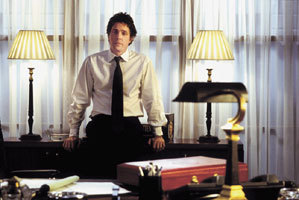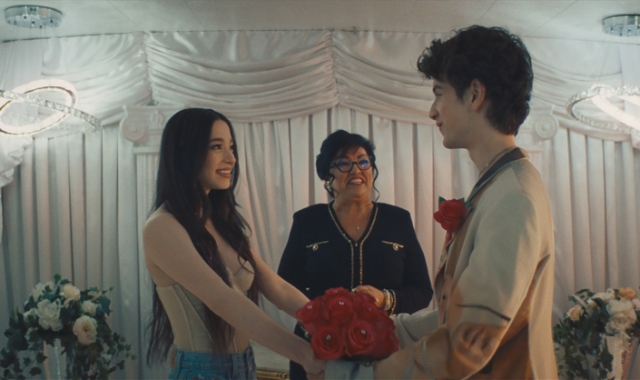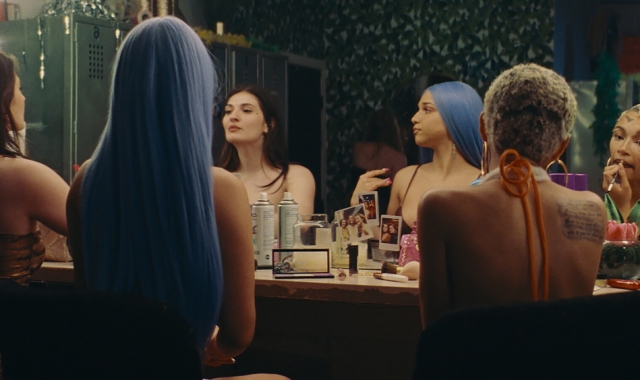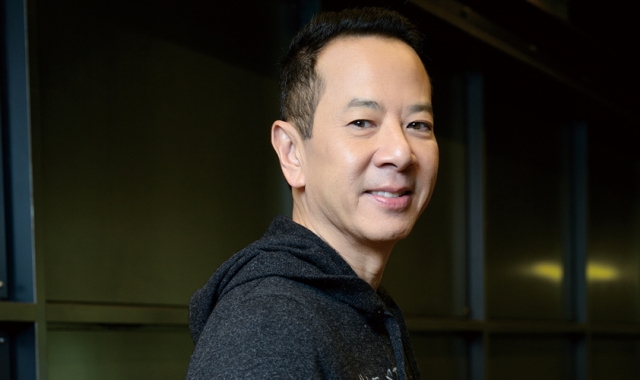
영국 영화평론가들은 왜 그리 불평불만일까? 지난 2003년 11월 말 <러브 액츄얼리>(사진)가 개봉했을 때 긍정적인 평에서도 ‘비현실성’을 투덜거린 것들이 있었다. 주된 불평에는 휴 그랜트가 영국 총리로 설득력이 없다든가 다우닝가에 런던 토박이 아가씨가 차 나르는 직으로 취직될 리 없다든가 히드로 공항은 행복이 아니라 스트레스를 안겨주는 곳이라든가 심지어 성탄절이라면서 날씨는 왜 그리 좋으냐는 것 등이 있었다. 그러나 이 똑같은 평론가들은 우디 앨런이 그려내는 뉴욕(실제 몇 블록 안 되는 공간과 우디 앨런의 머릿속에서나 존재하는 뉴욕)이나 할리우드가 보여주는 부유하고 소비지향적인 로스앤젤레스(사실상 대체로 중산층 변두리와 제3세계 분위기의 낙후된 건물들로 이루어진 로스앤젤레스)의 ‘현실성’은 절대 문제삼지 않을 것이다. 판타지랜드, 즉 환상의 세계는 외국에만 존재하는가보다.
1950년대 후반부터 영국 대중문화는 점차 낙천적인 순수 엔터테인먼트보다 냉혹한 일상의 현실에 중심을 둬왔다. 처음에는 ‘서민들의 애환을 그리는 드라마’(kitchen-sink dramas)로 알려진 영화부터 시작해서 노동계급의 일상생활에 바탕을 둔 TV드라마나 시리즈물로 나갔다. 1960년대 중반의 ‘경쾌한 런던’은- 이 역시 우디 앨런의 뉴욕이 맨해튼의 일부 구역에나 존재하던 것과 마찬가지- 영국 코미디와 드라마계를 점령한 앵글로색슨형 그런지풍의 일방적인 행진에서의 일시적 변동일 뿐이었다.
방송계 출신이면서 <러브 액츄얼리>의 각본을 쓰고 감독한 리처드 커티스가 이런 추세를 거스르고 평론계로부터 혹독한 대가를 치르게 된 것은 어찌보면 불가피한 일이었다. <네번의 결혼식과 한번의 장례식>(1994)에 이어 <노팅 힐>(1999)에서 커티스가 만들어낸 런던과 영국은 일상의 사회적 리얼리즘보다는 이상화된 전형에 편승하는, 부정보다는 긍정하는 가치를 옹호하는 것이다.
한 영국 평론가는 <러브 액츄얼리>를 “한입에 쏙 들어가는, 초콜릿 덮이고 속이 말랑말랑한 미니플롯 세트, 스타들로 이루어진 초콜릿 카메오 셀렉션”이라고 맹공했다. 그러나 자국어로 자국 문화를 다루는, 짜임새 있고 낙관적인 로맨틱코미디에 굶주린 영국 관객은 커티스의 달콤한 캔디를 마음껏 즐겼다. 지금까지 영국에서 이 영화의 수익은 자그마치 4680만달러가 넘고, <반지의 제왕3>가 나타나서야 1위 자리를 빼앗겼다.
관객은 바로 많은 평론가들이 놓친 점을 알아차린 것이다. 휴 그랜트가 총리로 나오는 영화는 당연히 판타지라는 것, 영국의 노장 록가수가 정말로 ‘졸라좀마난똥구멍개쉐이’ 같은 말을 해대지 않는다는 것, 영국 총리가 기자회견에서 감히 미국 대통령을 비판하지 않을 거라는 점, 또한 하녀에게 구애하려고 포르투갈어같이 엄한 언어를 공부할 영국 작가(콜린 퍼스 역)가 없다는 것 말이다.
그러나 우린 그럴 수도 있다고 생각하고 싶어한다. 우디 앨런의 뉴욕이나 할리우드의 햇살 가득한, 이상화된 LA가 실재한다고 생각하고 싶어하는 것처럼. 판타지, 액추얼리- 사실은, 환상이지.
Fantasy, Actually
LONDON - Why are British film critics so miserable? When "Love Actually" was released in the U.K. in late November, even some of the positive reviews complained that the film wasn't "realistic." Chief moans included: (a) Hugh Grant is unbelievable as a British Prime Minister; (b) a Cockney tea-girl would never be employed in Downing Street; (c)Heathrow Airport is really a stressful, not a happy, place; and even (d)why is the weather so good when it's meant to be Christmas?
These same critics, however, would never question the "reality" of Woody Allen's New York (which only exists in a couple of blocks and Allen's mind) or Hollywood's image of wealthy, consumerist Los Angeles (which is largely middle-class suburbs and Third World shanty buildings). Fantasylands, it seems, only exist overseas.
Since the late 1950s U.K. popular culture has increasingly centred on the grim reality of everyday life over pure, optimistic entertainment, first with movies that became known as "kitchen-sink dramas" and then with TV soaps and serials based in working-class life. The "Swinging London" of the mid-1960s - which, like Woody Allen's New York, only ever existed in a few blocks of Manhattan - was merely a small blip in the onward march of Anglo-Saxon grunginess that has taken over the country's diet of comedy and drama.
It was somehow inevitable that Richard Curtis, who wrote and directed "Love Actually," and who started in TV, would eventually pay a critical price for swimming against this tide. Starting with "Four Weddings and a Funeral" (1994) and subsequently with "Notting Hill" (1999), Curtis has invented a London and a Britain that trades on idealised stereotypes rather than everyday social realism, and champions positive values rather than negative ones.
One British critic lambasted "Love Actually" as "an array of chocolate-covered, bite-sized, soft-centred mini-plots, a Cadbury's Cameo Selection of stars." But British audiences, starved of well-written, upbeat, romantic comedies in their own language and culture, have feasted on Curtis' candies: the film has so far grossed a massive ?8 million-plus in the U.K. - only knocked off the No. 1spot by "Lord of the Rings III" - and should surpass even "Notting Hill" and Curtis' adaptation of "Bridget Jones's Diary" at the local box-office.
Audiences seem to have noticed what many critics seem to have missed: that any movie which has Hugh Grant playing a Prime Minister is OF COURSE a fantasy; that ageing English rock stars don't ACTUALLY use words like "fuckwankbuggershittingarseheadandhole"; that a British PM wouldn't DARE to criticise a U.S. President at a press conference; or that an English writer(played by Colin Firth) would never learn an IMPOSSIBLE language like Portuguese to romance his maid.
But we'd like to think they would. Just as we'd like to think Woody Allen's New York or Hollywood's sunny, idealised Los Angeles really exists. Fantasy, actually.
-Based in London, Derek Elley is Senior International Film Critic of <Variety>, the Hollywood-based showbiz paper. He writes here in a personal capacity.






